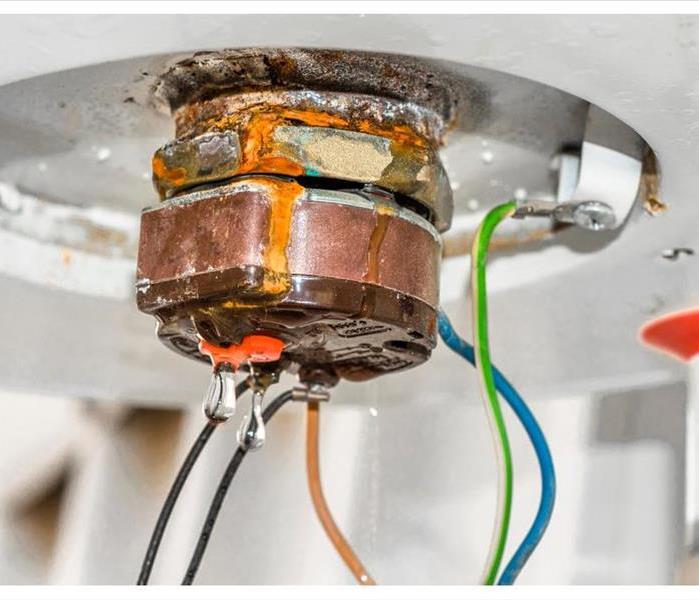What To Do If Your Water Heater Is Leaking
11/20/2020 (Permalink)
Leaking Water Heater?
A leaking water heater can cause a lot of damage. Water heaters in Glendale, AZ, homes tend to be tucked away out of sight in basements or closets, which means leaks can go undetected for a long time. Water left standing can damage your floor, subfloor, insulation and more. Moisture can seep into drywall and flooring materials, leading to excess mold growth. Depending on the severity and duration of the leak, you may need to call a cleanup team to address the damage.
1. Stop the Leak
When you have a broken water heater, the first thing you should do is stop any new damage from occurring. Disconnect the power to the heater and shut off the water supply. You may need to drain the heater so that no more water can leak out. Do this by connecting a hose to the heater’s drain valve. Use towels or a shop vacuum to remove any standing water.
2. Assess the Damage
Once the leaking has stopped, you’ll need to assess the situation and figure out:
- whether to repair or replace the leaking
- water heater
- how much damage resulted from the leak
- what cleanup measures are necessary
You may need to contact a plumber or other technician to determine the best course of action for repairing the failed water heater. Depending on the extent of the water damage, you may need to contact water remediation professionals.
3. Clean and Disinfect
If the heater was leaking for some time, moisture has likely seeped into nearby drywall, baseboards, wood floors and/or carpeting. Where there is moisture, you can expect to find mold growth, even if you can’t see it yet. Remove any wet drywall and flooring materials. The studs and subfloor must be fully dried and sanitized to prevent a future mold problem.
As soon as you discover a leaking water heater, it’s important to act quickly to minimize the damage. A professional remediation service may be necessary to eliminate mold and restore your belongings.



 24/7 Emergency Service
24/7 Emergency Service
